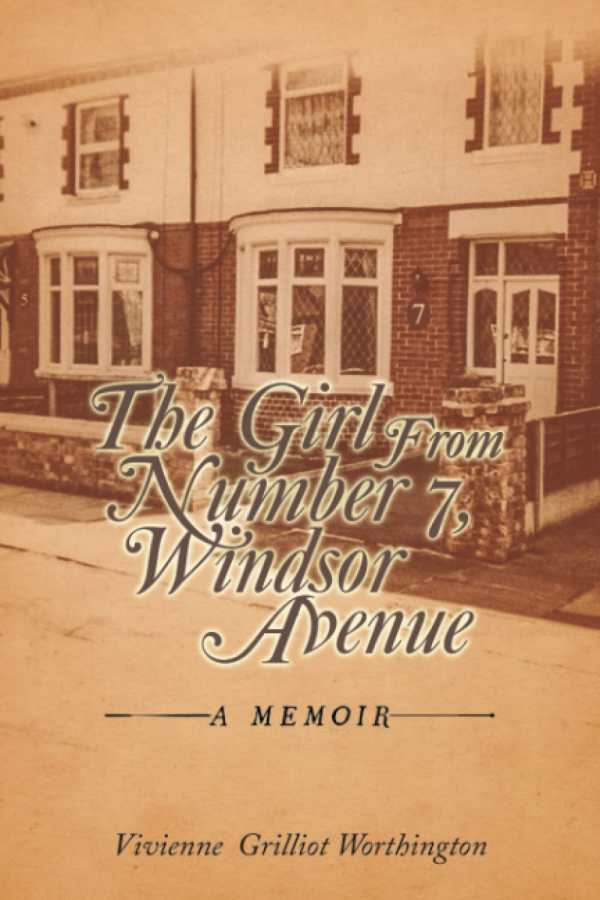The Girl From Number 7, Windsor Avenue
A Memoir
This poignant memoir about a midcentury military childhood exemplifies a girl’s zest for adventure.
Vivienne Grilliot Worthington’s memoir The Girl From Number 7, Windsor Avenue is about her childhood as a military daughter.
Worthington was born in England in the 1950s and was raised by her grandparents for her first six years. These years were ordinary—and interrupted by a summons to join her parents in the United States. Her father was in the air force; the family spent years moving around. In the process, Worthington was exposed to a variety of people and cultures, which had a profound influence on her worldview. She was the eldest child by several years (her younger siblings are a minor presence in the book), and her interactions with her parents remained a constant wherever they went.
The book’s central relationships are captured in terms of push-pull, as with Worthington’s father’s insistence that she do better in school, which leads to several sympathetic scenes detailing their mutual frustration. The book also recalls her mother’s love of books and music—named as an inherited trait. And Worthington’s interactions with both sets of grandparents are infused with warmth and love.
Every place where Worthington lived is described in clear, evocative terms, including with details about their various sights and sensory impressions. Indeed, Worthington found much to love everywhere she went, and the text reflects it. Still, Worthington’s grandparents’ house maintains its distinction as the most loved of all these sites—Worthington’s favorite place in the world.
The prose changes as it tracks Worthington’s growth. When she’s seven and thinks that she’ll be able to visit her brother in heaven, its tone is innocent; when she’s a teenager getting into scrapes at boarding school, it is sheepish. As she ages, her thought patterns and interests mature. And from childhood on, she maintains a zest for adventure, coming to love the shifts of life within a military family.
In the book’s backdrop are enormous social changes, reflected both in lighthearted mentions of culture (as with Worthington’s awareness of a new band, the Beatles) and references to historical events, including President Kennedy’s assassination. In brutal form, Worthington becomes aware of racism while her father is stationed in Mississippi; at the time, the state was segregated, and she learned that her friend could not go to the beach with her as a result. She also angered a bus driver by offering her seat to an elderly Black woman; her feelings of despair and impotence in recalling such events are tangible. The book’s ending is abrupt, though, cutting from the end of Worthington’s high school years to an unpleasant family event when she was an adult; this casts new light on her childhood experiences.
The Girl From Number 7, Windsor Avenue is a reflective memoir covering the adventures of a military childhood.
Reviewed by
Carolina Ciucci
Disclosure: This article is not an endorsement, but a review. The publisher of this book provided free copies of the book and paid a small fee to have their book reviewed by a professional reviewer. Foreword Reviews and Clarion Reviews make no guarantee that the publisher will receive a positive review. Foreword Magazine, Inc. is disclosing this in accordance with the Federal Trade Commission’s 16 CFR, Part 255.

